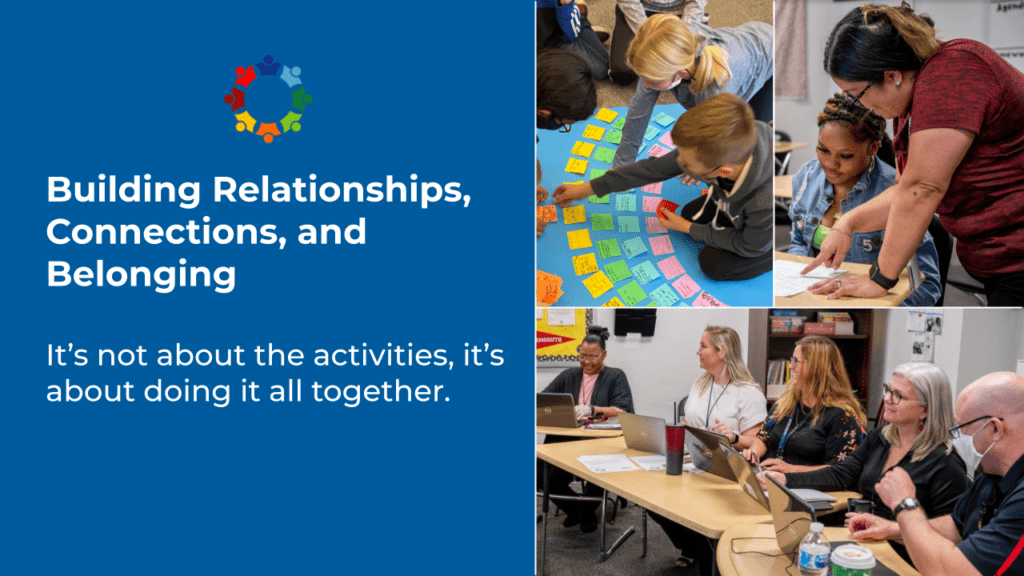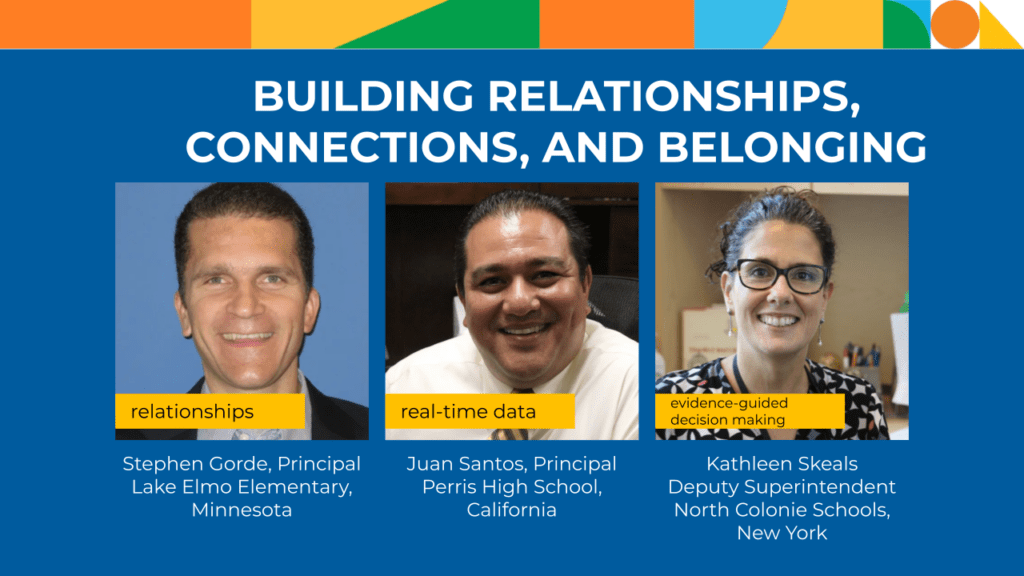
Recent NAEP scores may be discouraging, but certainly not surprising. What may surprise you is that solution isn’t about doing more – it’s about doing things differently.
“A systemic and intensive focus on data, relationships and evidence-based support can help meet the current challenges. Real-time data helps schools pinpoint where students are struggling; a focus on relationships increases students’ school engagement after two years of pandemic disconnection; and an evidence-based approach supports all students, particularly the large number currently shown to be off-track. “ – Robert Balfanz and Angela Jerabek, 2022, Hechinger Report (Link)
On November 29th, 2022, BARR Center hosted a webinar on Building Relationships, Connections, and Belonging facilitated by Rachael Maves, BARR Center’s Chief Operating Officer and former Deputy Superintendent for the California Department of Education.
The presentation began with BARR Center’s Founder and Executive Director, Angela Jerabek, providing information regarding the National Assessment of Educational Progress (NAEP), which has been assessing what students know and can do since 1969. Jerabek shared that NAEP has recorded this year to have the largest average score decline in reading since 1990, and the first-ever score decline in mathematics. These students are now freshmen in high school and are in the midst of a critical transition year that research shows plays a powerful role in students’ success in high school and beyond. BARR’s decades of experience working on high school improvement give us hope that most schools have within their reach the tools and strategies to get students back on track. Given the unprecedented level of student need, we need to rethink how high schools organize, implement, and refine their strategies to support students. High schools should be laser-focused on three key things: actionable data, supportive relationships, and a collective and evidence-based approach to student support.

To continue the conversation, BARR Center’s Deputy Director, Rob Metz, led conversations with three educational leaders:
Stephen Gorde, Principal at Lake Elmo Elementary, Minnesota, on building strong relationships
“We were looking for something that would impact to change our culture to meet the needs of the students. From my perspective as a leader, what I learned when we implemented BARR and we developed the systems and structures that allowed us to talk more deeply about the students and get to know them on a deeper level. We challenged our teachers to take that on and try to understand what it means to know your students and build meaningful relationships with them. Having a tool like U-Times where we work with students on a regular basis we collect data we see how students interact, it allows us to know students on a deeper level. When we dig deeper, when we really start to understand the students, we receive a lot of insight and those “Aha!” moments allow us to better serve our students. As a principal, it allows me more insight into my students and what my teachers are facing.”
Juan Santos, Principal at Perris High School, California, on using real-time actionable data
“I’ve been lucky to have a great BARR Coordinator who has really helped us to open up our eyes to some of the data we are gathering… Being able to merge both the quantitative and qualitative data has allowed us to take a closer look at what’s happening to our students and have targeted conversations within our teams to address the issues that they have inside and outside of our classrooms.”
Kathleen Skeals, Deputy Superintendent at North Colonie Schools, New York on evidence-based decision making
“BARR was the only one that integrated social-emotional learning and the data we have, and brought in the context through the anecdotal data, by teachers really knowing their students. There was no other product that could actually bring all those pieces together because what we really decided we needed was a reset on culture. We were all so disconnected after the pandemic and everyone was nervous and scared about whatever protocols were and even though we thought we had a really strong culture prior to the pandemic, it felt very fractured and isolated. We saw BARR as a way to address our student needs but also our adult needs—to rebuild a community that’s rooted in the common good and that’s how we made our decision.”